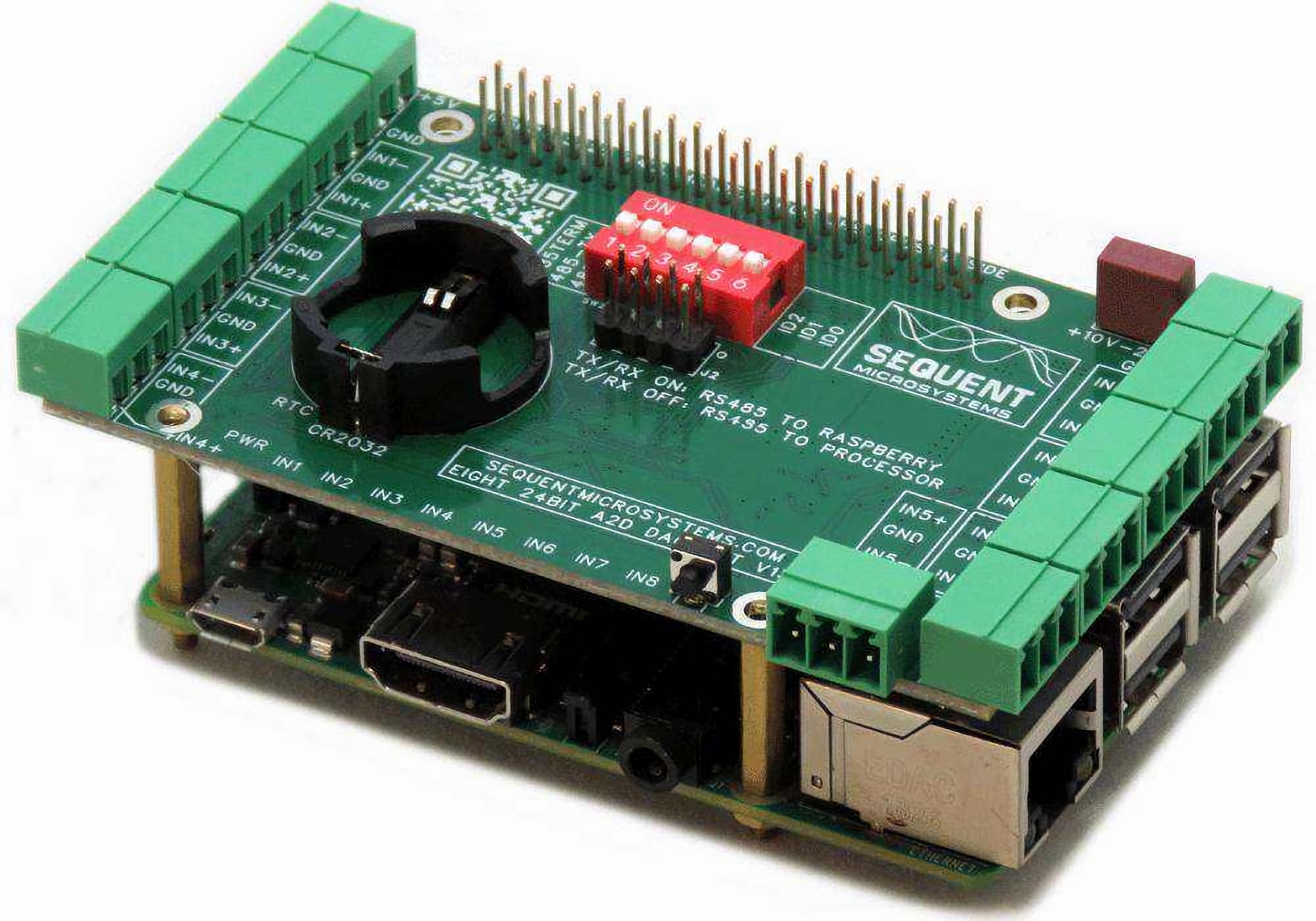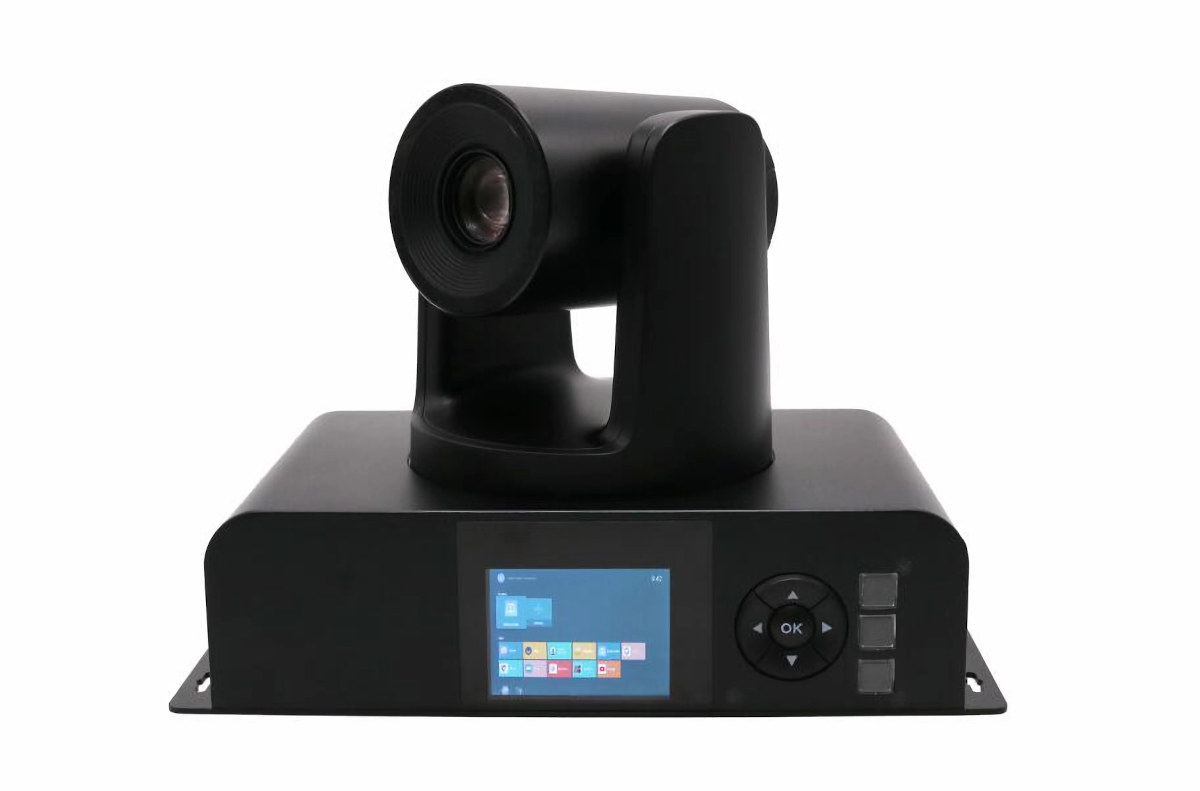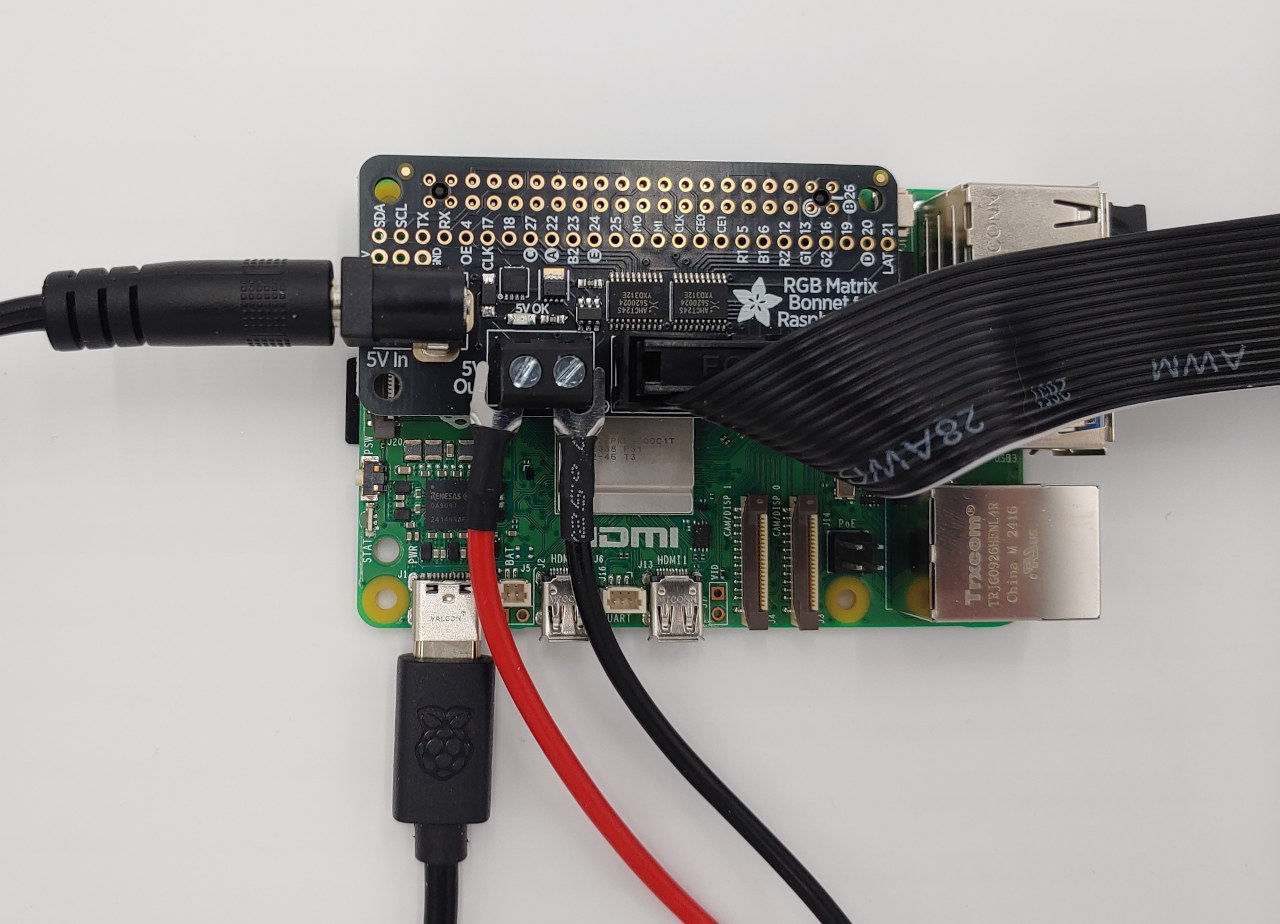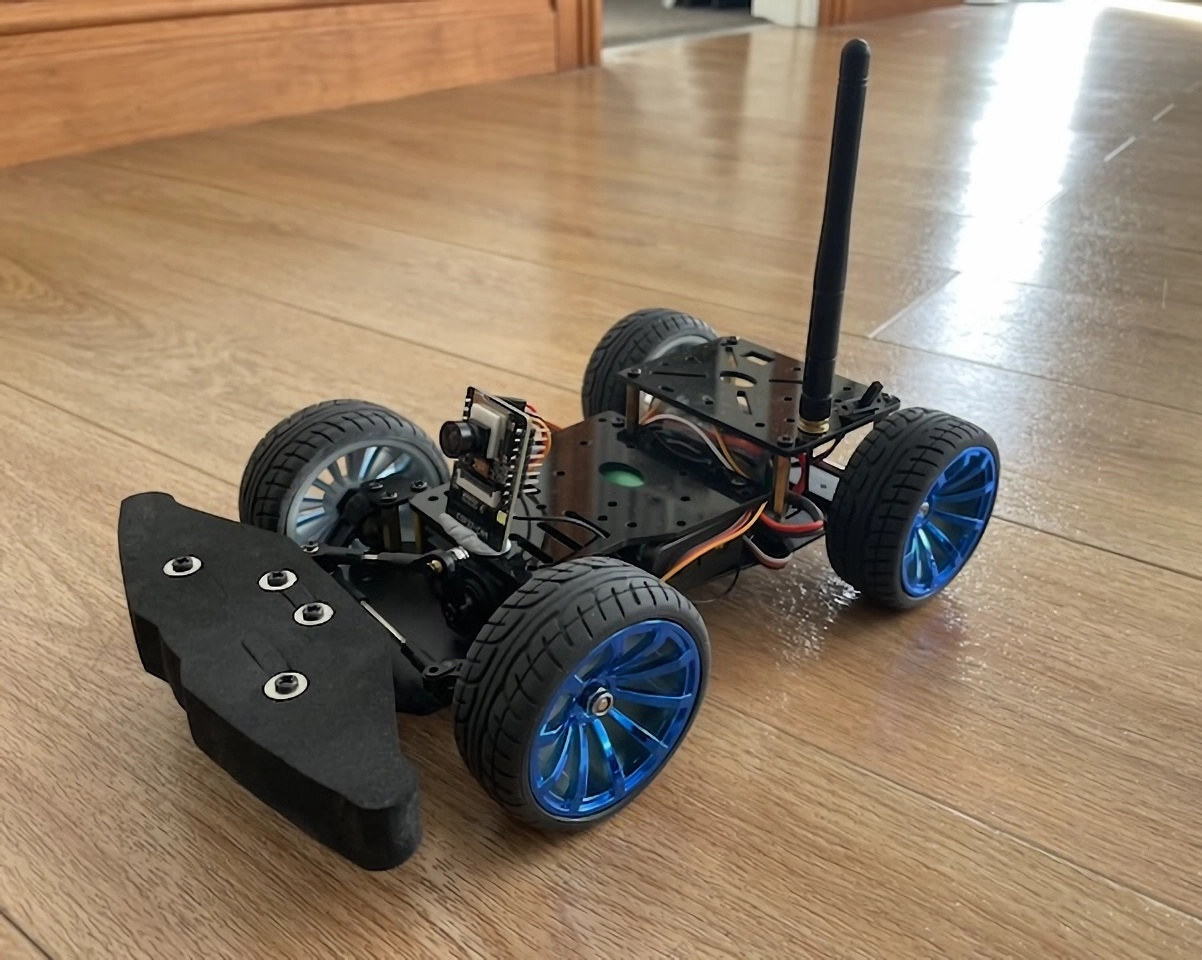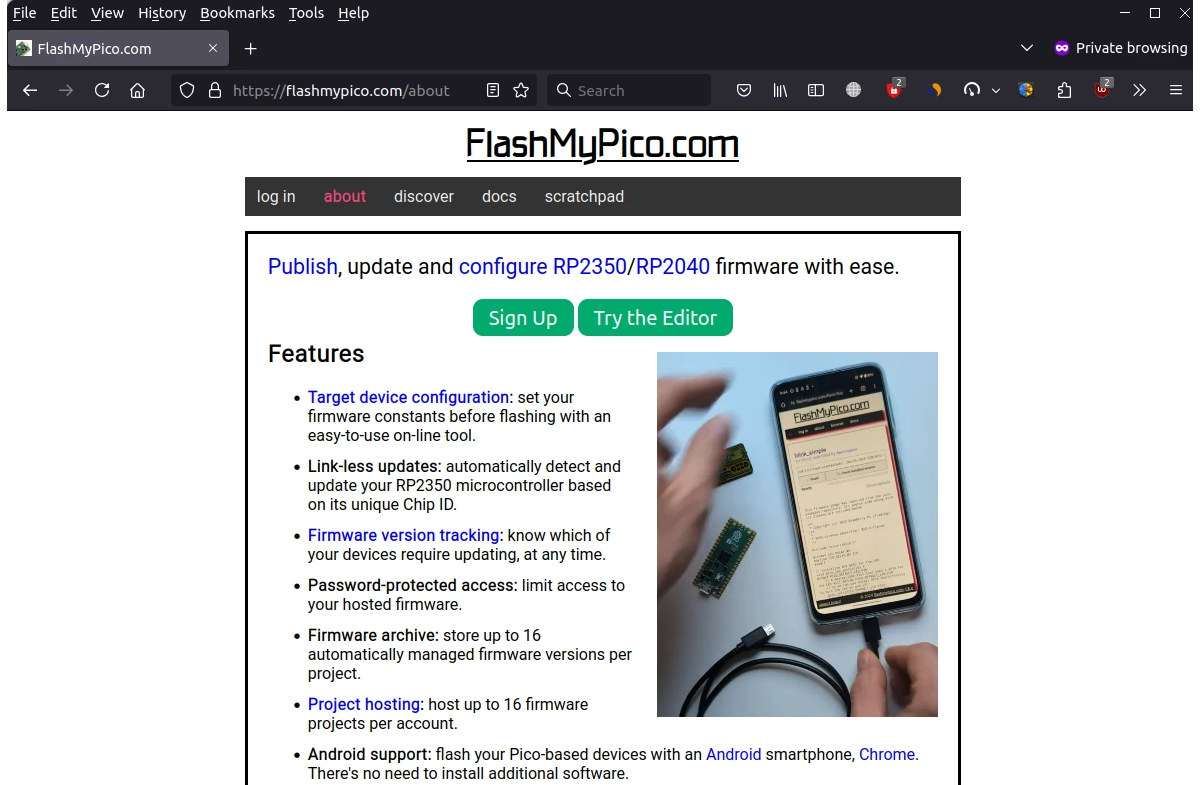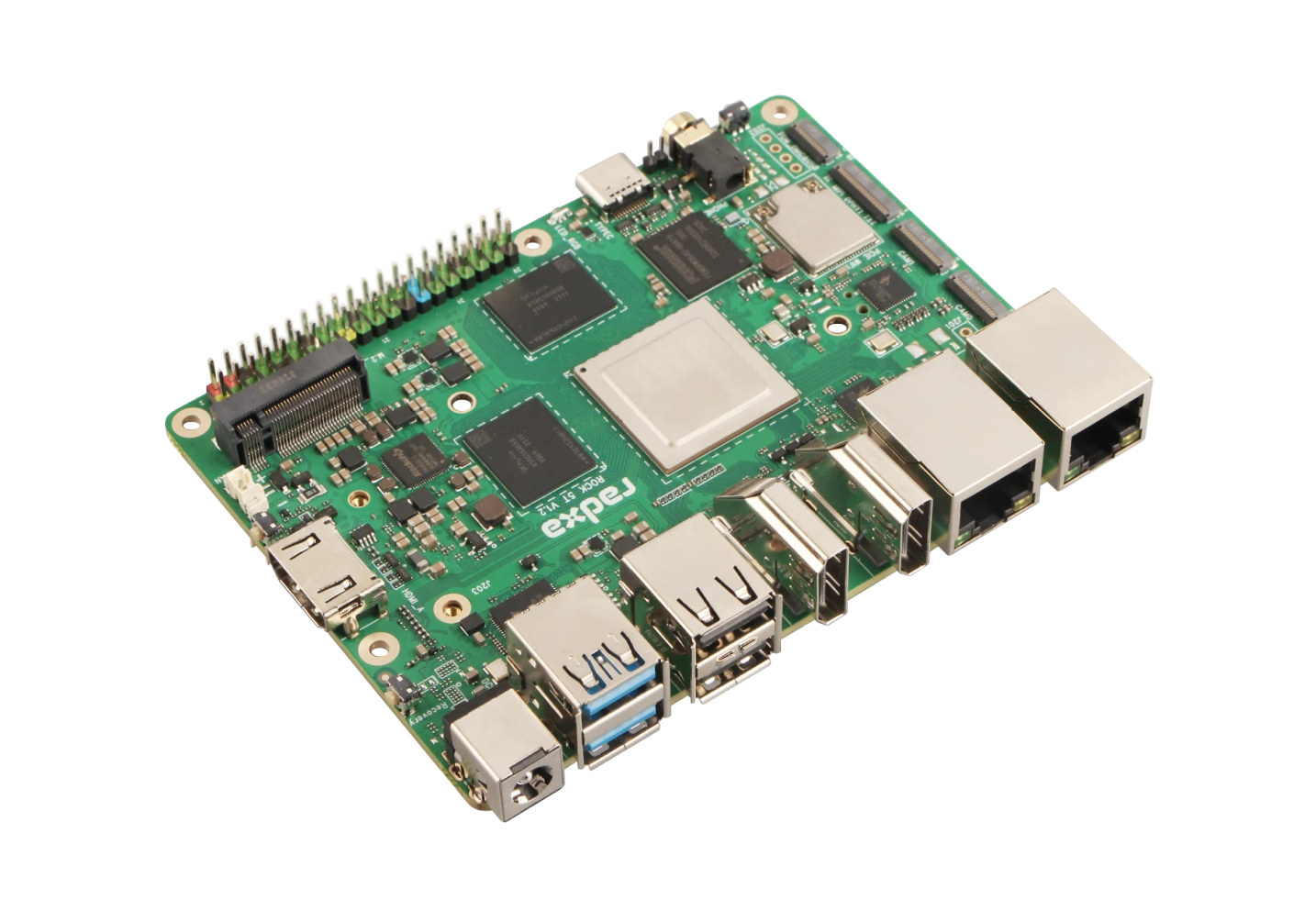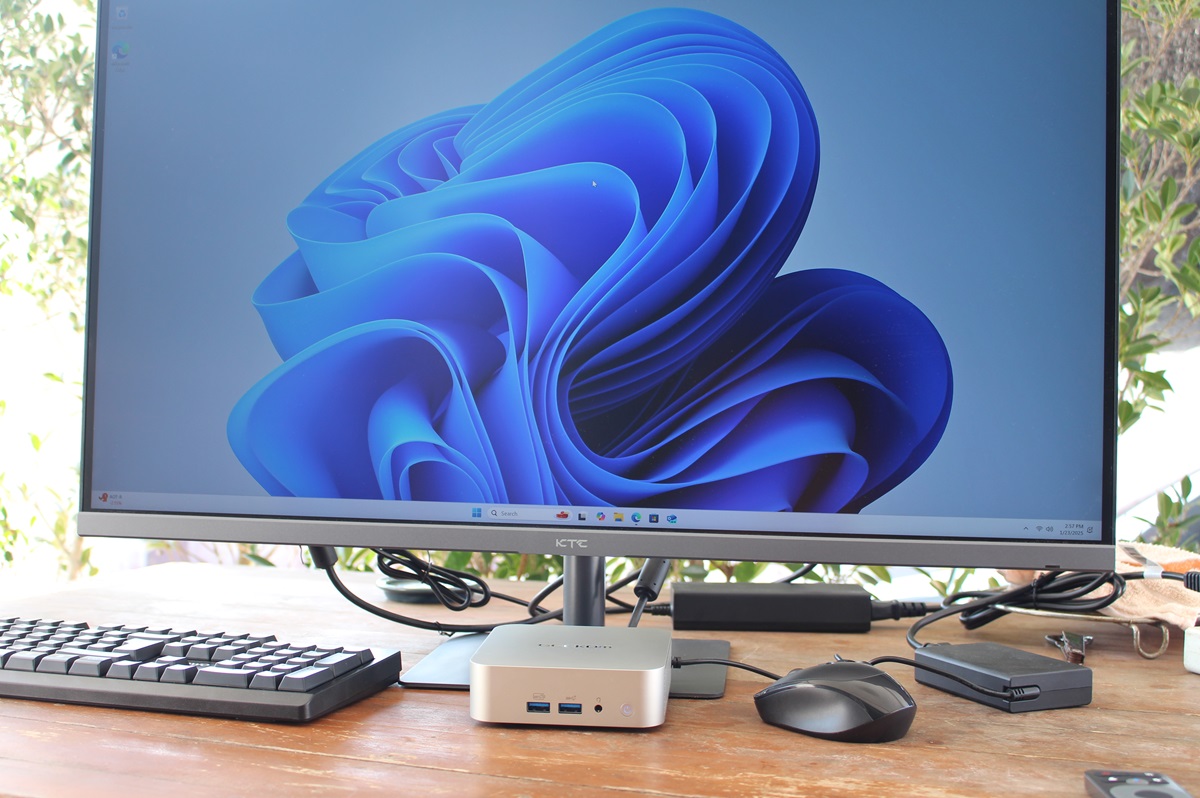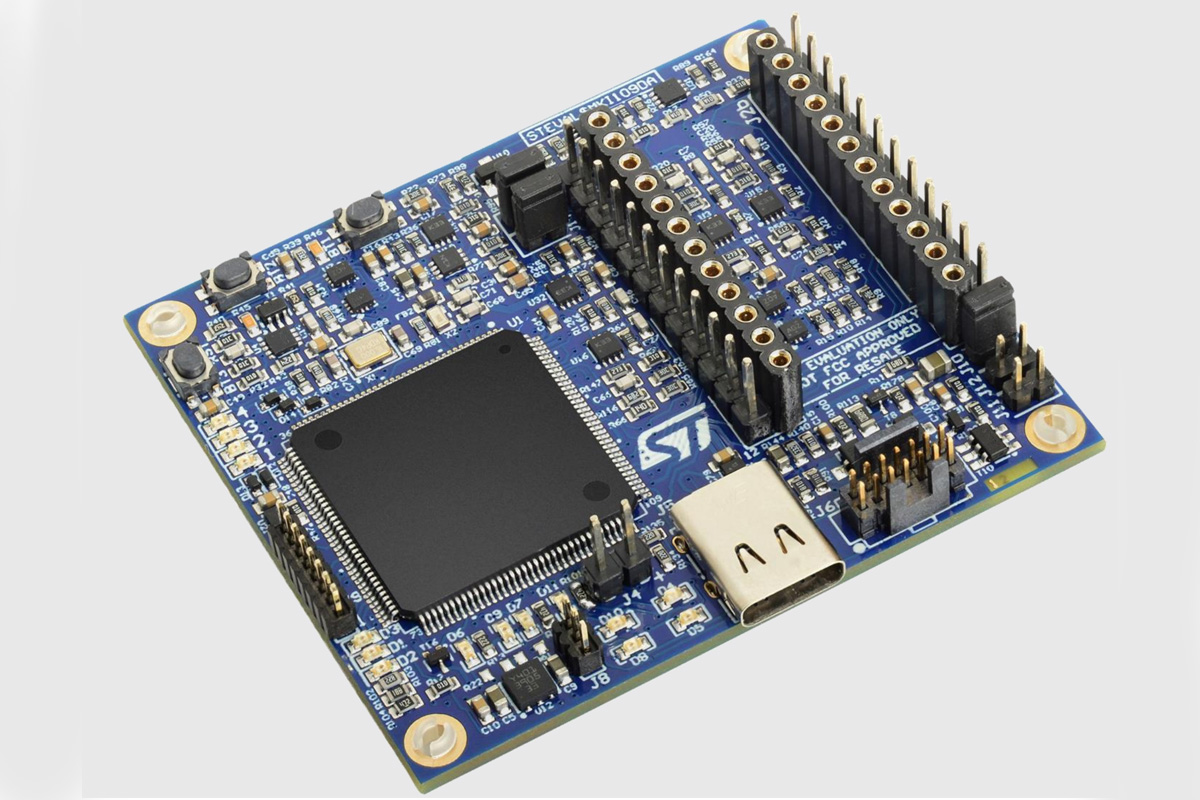Sequent Microsystems’ “Eight 24-bit ADC 8-layer Stackable HAT” is a Raspberry Pi expansion board designed for home automation projects. It is compatible with all Raspberry Pi models with a 40-pin GPIO header and features a stackable design that provides scalability for more complex setups. It includes eight independent 24-bit ADC channels, providing ultra-high resolution for measuring small analog signals accurately. It also features programmable gain amplifiers on each input channel for amplifying weak signals and optimizing the ADC’s input range. It is stackable up to eight layers, allowing for up to 64 differential analog inputs. It provides 4A continuous and 5A peak power to the Raspberry Pi via the GPIO header. It sends data via the I2C lines, leaving all other pins free for use. Also, it supports isolated RS485 communication for long-distance connectivity. The 8-layer Stackable HAT for Raspberry Pi is suitable for precision data acquisition applications, including industrial […]
Mekotronics R58-PTZ video surveillance/live streaming embedded computer features a PTZ camera, two HDMI input ports
I swear it’s not an AI-generated picture of a device, but the Mekotronics R58-PTZ is real and just another unusual Rockchip RK3588 hardware platform from the company that’s an embedded computer with a 3-inch display on the front panel and a PTZ (Pan-Tilt-Zoom) camera placed on top. Mekotronics describes it as a live-streaming box designed for video surveillance, so I assume its main use case is to leverage to built-in 6 TOPS NPU for live streaming with some real-time effect and/or surveillance applications detecting persons, masks, etc… especially it also offers two HDMI inputs for extra cameras. Mekotronics R58-PTZ specifications: SoC – Rockchip RK3588 octa-core processor with CPU – 4x CortexA76 cores @ up to 2.4 GHz, 4x CortexA55 core @ 1.8 GHz GPU – Arm Mali-G610 MP4 GPU with support for OpenGL ES 1.1/2.0/3.2, OpenCL 2.2, Vulkan 1.2 Video decoder – 8Kp60 H.265, VP9, AVS2, 8Kp30 H.264 AVC/MVC, 4Kp60 […]
Adafruit’s PioMatter library adds HUB75 RGB LED Matrix support to the Raspberry Pi 5
The Raspberry Pi 5 brought a more powerful CPU and GPU and faster I/Os compared to the Raspberry Pi 4, as well as some incompatibilities. While the transition from a Raspberry Pi 4 to a Raspberry Pi 5 is usually painless for most applications, Adafruit notes that the ability to drive HUB75 RGB LED matrices was lost on the Raspberry Pi 5 which now relies on the Raspberry Pi RP1 peripheral control to drive GPIOs instead of the Broadcom processor directly controlling them. The company has now addressed that by using the PIO (Programmable I/O) block in the RP1 chip, yes that’s the same PIOs as found in the RP2040 or RP2350 microcontroller, to drive HUB75 RGB LED matrices from the Raspberry Pi 5, and their work can be found on the Adafruit-Blinka-Raspberry-Pi5-Piomatter repository on GitHub. The instructions to install the Adafruit Blinka Raspberry Pi 5 PioMatter library (or just […]
Build a four-wheel RC car with ESP32-CAM board and off-the-shelf parts
While there are plenty of ESP32-based wireless-controlled robot cars with a built-in camera, like the PiCar-X 2.0 or Zeus Car, it might be more fun and rewarding to build something yourself. That’s exactly what Matt Sroufe did by building his own RC car using off-the-shelf parts and an ESP32-CAM board and writing firmware for it. To get started with the build, you’ll need six main components: A 4-wheel car chassis – $47.49 on AliExpress Electronic speed controller – $5.27 on AliExpress. Matt selected the 30A version with green PCB. Dual-battery holder for about $2 on AliExpress 2x 18650 3.6V cells or 7.4V batteries purchased locally ESP32-CAM board with an external antenna and the 160° FoV camera – About $14 with board, camera, and external antenna. Bluetooth gamepad such as a PS4 controller The total should be around $80 with the batteries assuming you already own a Bluetooth gamepad. You’ll need […]
FlashMyPico – Raspberry Pi Pico / Pico 2 code editing and firmware flashing from a web browser
FlashMyPico website allows you to write C code, build the firmware, and flash it to your Raspberry Pi Pico, Pico W, Pico 2, or Pico 2 W directly from a web browser instead of having to check out the code from GitHub, build it in a terminal, and then manually copy the resulting binary. I’ve given it a quick with a Raspberry Pi Pico 2 board. The first step is to head over to flashmypico.com from your computer or even an Android smartphone. You’ll need a web browser that supports WebUSB, so for example, Firefox is not an option, and I eventually had to use Google Chrome instead. There’s a detect device link on the bottom left, so I clicked on that first, and my Raspberry Pi Pico 2 was detected as “RP2350 Boot” after I put it in bootloader mode. But it just told me that my board is […]
Radxa ROCK 5T SBC packs ROCK 5 ITX mini-ITX motherboard’s features onto a 110x80mm PCB
Radxa ROCK 5T is yet another Rockchip RK3588 SBC whose main selling point is to pack most features of the ROCK 5 ITX mini-ITX motherboard (170x170mm) into a much smaller 110x80mm board. The board features up to 32GB RAM, M.2 2280 sockets for NVMe SSDs, four independent display outputs via HDMI, USB-C, and MIPI DSI, HDMI input and camera interfaces, two 2.5GbE RJ45 jacks, on-board WiFi 6/6E and Bluetooth 5.x, and an M.2 Key-B socket for cellular connectivity. Radxa ROCK 5T specifications: (with differences highlighted in bold or strikethrough) SoC – Rockchip RK3588 or RK3588J (industrial grade) CPU – Octa-core processor with four Cortex-A76 cores @ up to 2.2 GHz (industrial) / 2.4 GHz (commercial), four Cortex-A55 cores @ up to 1.8 GHz GPU – Arm Mali G610MC4 GPU VPU 8Kp60 10-bit H.265 / VP9 / AVS2 / AV1 decoder, 8Kp30 H.264 decoder 8Kp30 H.265 / H.264 encoder AI accelerator […]
GEEKOM A6 Review – Part 2: A sub-$500 mid-range AMD Ryzen 7 6800H mini PC tested with Windows 11 Pro (Sponsored)
In the first part of the review, we’ve already checked out the specs, gone through an unboxing and a teardown of the GEEKOM A6 mini PC powered by an AMD Ryzen 7 6800H CPU with up to 32GB DDR5 and a 1TB SSD, before quickly booting the preinstalled Windows 11 Pro. We’ve now had time to test the GEEKOM A6 in detail, so we’ll report our experience with the Ryzen 7 6800H mini PC with Windows 11 Pro. We’ve tested the features, ran benchmarks, evaluated storage and networking performance, stress-tested the device to see how it performs under load, and measured fan noise and power consumption. We’ll also compare it to the previous GEEKOM A5 and A7 mini PCs. [Update: The sponsored tag was added temporarily, as GEEKOM paid for the review to be pinned at the top of the website for one week] Software Overview and Feature Testing Going […]
STMicro’s STEVAL-MKI109D evaluation board supports all ST MEMS sensors with a DIL24 socket
STMicroelectronics has introduced the STEVAL-MKI109D a MEMS sensor evaluation board, designed to test and optimize STMicro’s MEMS sensors for various applications, including industrial automation, smart agriculture, and consumer electronics. Built around the STM32H563ZI Arm Cortex-M33 MCU this development board features I²C, I3C, and SPI interfaces, along with a TDM interface for high-speed sensor data communication. The board is also compatible with STMicro MEMS DIL24 adapter boards, which makes it easy for engineers to test different sensors. Additionally, it has software-adjustable power circuitry (0–3.6V), and onboard power monitoring for accurate analysis of sensor performance. STEVAL-MKI109D specifications Main MCU – STMicro STM32H563ZI Arm Cortex-M33 MCU with DSP and FPU Storage – MicroSD card slot Sensors – Supports all STMicro MEMS DIL24 compatible adapter boards Interfaces – I²C, I3C, SPI, TDM USB – USB Type-C connector for power and programming Misc Onboard J6 connector for STM32 programming and debugging Onboard J9 connector for […]


